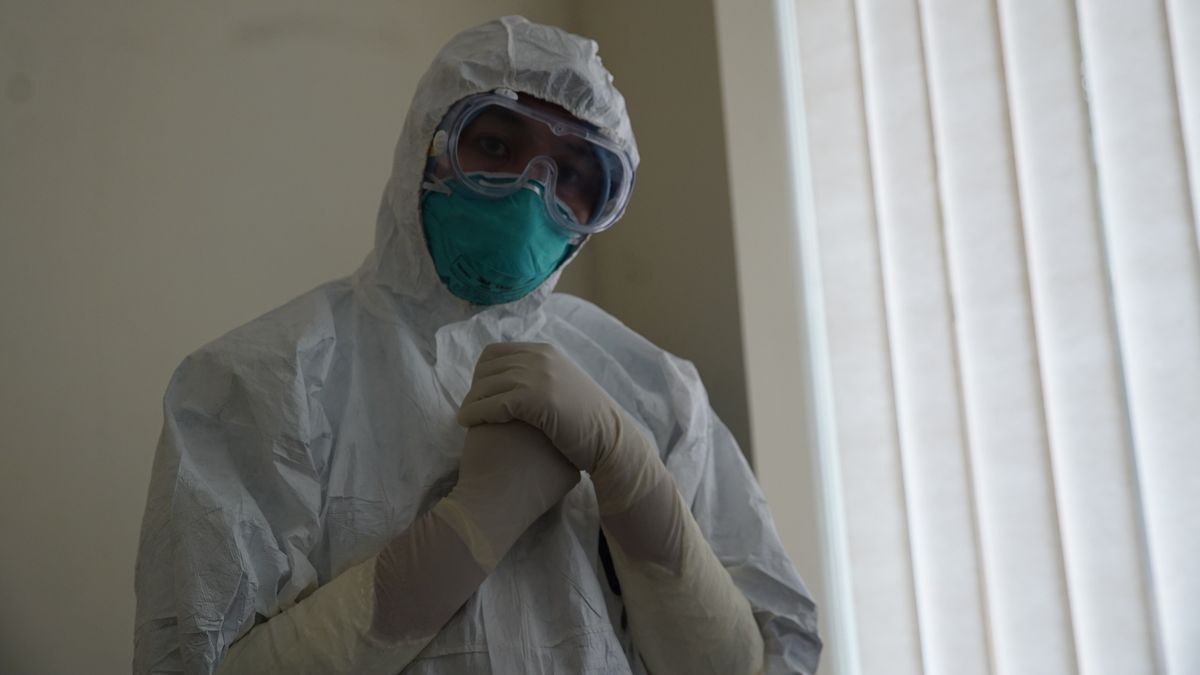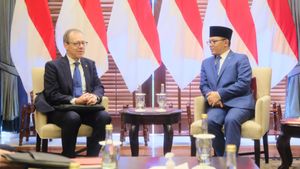JAKARTA - Every country has to pay a lot for handling the corona virus or COVID-19. Regarding money, the cost of handling this pandemic is clearly not cheap. Others, more importantly, are about humanity. The vanguard troops, medical personnel and other workers who have had direct contact with the handling of COVID-19 are the ones who pay dearly. In relation to these two things, what can the state do?
Singapore is the closest example that can be exemplary. About how the Lion Country appreciates medical personnel and other workers at the vanguard of the COVID-19 fight. In Singapore, a number of political elites, ranging from the President, ministers in the cabinet, to heads of other state institutions, have volunteered to cut their salary for one month.
This step is important. Not only shows solidarity, but also as a concrete form of appreciation for the vanguard troops. Deputy Prime Minister Heng Swee Keat, at a parliamentary session, February 28, explained that in the salary cut scheme, the excess is allocated as a bonus - in the amount of one month's salary - for the vanguard troops.
The solidarity shown by the government has spread to other sectors. Reported by Quartz, the Singapore company, Temasek, also did the same. The head of the company instructed all officials to allocate their salaries to employees who work in the operational section. The value of the contribution, varies, is returned to the respective top brass.
Not only infect the country. The Singapore government policy is also being followed by the Hong Kong government in order to appreciate the health team who are going through difficult times struggling with COVID-19. The policy made all politically appointed officials to donate a month's salary for subsidies.
Interestingly, this policy from the Hong Kong government was realized right before they offered bonuses to medical staff who were at the forefront of the areas most at high risk of contracting COVID-19. The bonus is 20 percent of their basic daily salary. Kindness spreads fast.

How are you Indonesia?
If Mohammad Husni Thamrin is still alive, perhaps this exemplary movement regarding the allocation of money will start in Indonesia. He is an official of the Volksraad (People's Council of the Bahela era). Thamrin is known as a figure who is adept at defending the interests of the people. All his thoughts were on the side of the people.
Historian JJ Rizal said that if the people were in trouble, Thamrin was even willing to spend money from his own personal pocket. When the price of oil and green beans is too expensive, matters of watering roads, flooding, to repairing villages, Thamrin will say:
If the government does not have the courage to spend money to help the people, I will spend money!
Thamrin made frequent calls to insult the colonial government, which at that time held power over the Indonesian people. Thamrin has been dead since 1941. Unfortunately, until now no state official seems to have inherited his example. Just look at the news. Not a single Indonesian official has yet shown any signs of generosity.
However, support actually comes from those with the status of public figures. Some of them are Nikita Mirzani and Rachel Vennya. Despite their different forms, their steps in helping those who are fighting against COVID-19 should be followed. If the government does not want it, the rich people may knit subsidies.
"Niki is sad because the corona virus has spread to Indonesia. Niki has a little sustenance, Niki will donate 100 million Niki's personal money to help. Hopefully it can reduce the spread of the corona virus in Indonesia, "said Nikita on her Instagram account.
Unlike Nikita, there is also a difference between the celebgram who is also a businessman, Rachel Vennya. Rachel invites her followers and the public to raise funds through the Kitabisa.com site. The purpose of collecting funds is none other than to provide protection to health workers who handle COVID-19 in Indonesia.
“However, there are definitely medical and informal workers such as mothers who still have to work for their children. For example, a mother who becomes a nurse or health worker at a referral hospital. They still have to treat COVID-19 positive patients. Their job risk is very high in order to protect us all, ”wrote Rachel on page Kitabisa.com.
The raising which was carried out on March 16th has already got some pretty fantastic results. Within 24 hours, the fundraiser has reached more than 1 billion. "I never thought it would be this big in nominal terms in this short time."
The English, Chinese, Japanese, Arabic, and French versions are automatically generated by the AI. So there may still be inaccuracies in translating, please always see Indonesian as our main language. (system supported by DigitalSiber.id)








